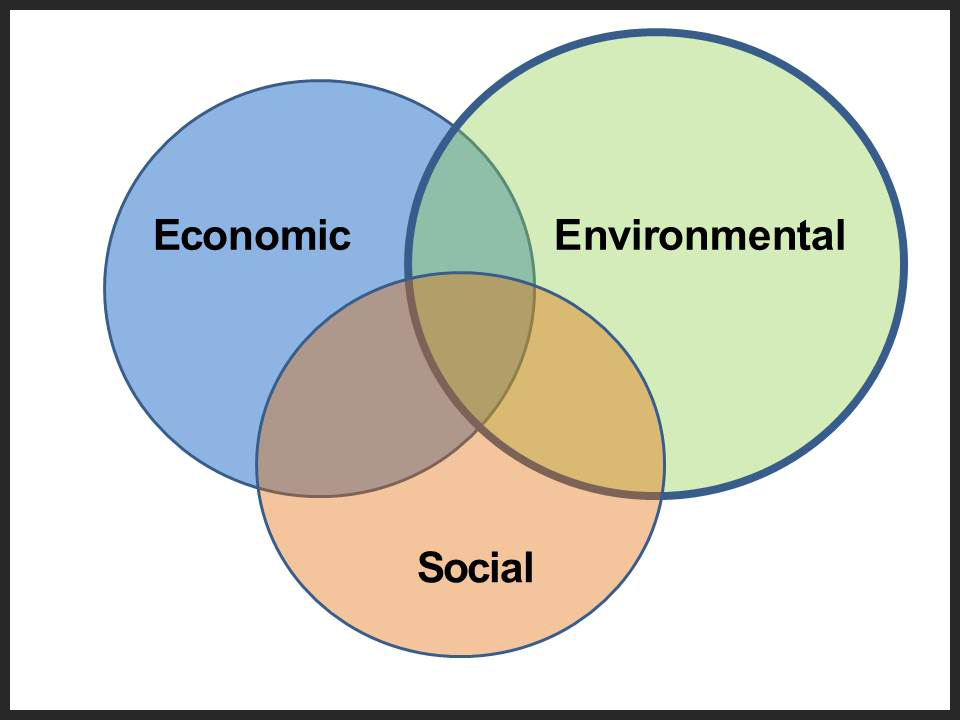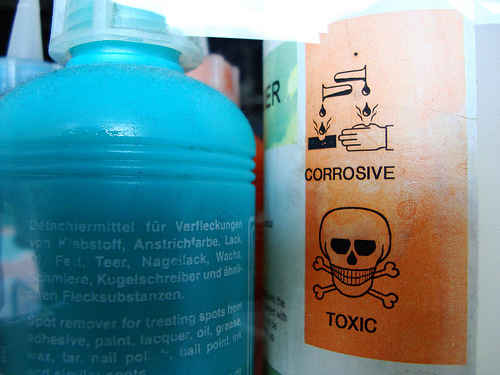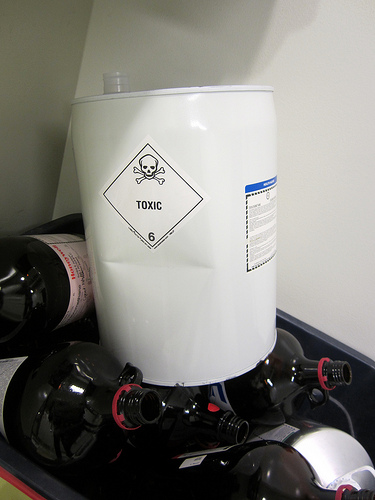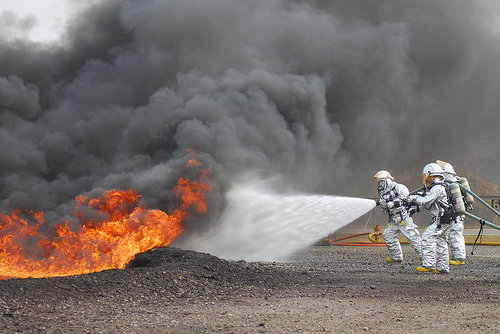Recent U.S. Presidents have issued a series of executive orders (EOs) that steadily expand federal agencies’ responsibilities to conduct their own activities in environmentally sound ways. President Clinton issued a number of EOs during 1993-1999 as part of “Greening the Government,” which were expanded upon and superseded by President George W. Bush’s 2007 EO Number 13423 “Strengthening Federal Environmental, Energy, and Transportation Management.” Since taking office, President Obama has continued these expansions. Last month, he issued EO Number 13693 to require “Planning for Federal Sustainability in the Next Decade.” This EO also revokes a number of President Obama’s own relevant EOs, and President Bush’s EO Number 13423.
Audit, Compliance and Risk Blog
Obama Expands Federal Agencies’ Responsibilities for Sustainability
Posted by Jon Elliott on Mon, Apr 13, 2015
Tags: Environmental risks, Environmental, ghg, Transportation, sustainability
California Water Crisis = Rising Consumer Costs for a Vanishing Resource
Posted by STP Editorial Team on Thu, Apr 09, 2015
Although water covers nearly three-quarters of the earth’s surface, only 0.033 percent of the world’s total supply is fresh water available for human use. Water is essential to every form of life, but is often taken for granted by consumers, who generally have maintained an attitude that plentiful water of the highest quality will always be available and is their right, a notion perpetuated by legislation. In 2013 the State Water Resources Control Board (SWRCB) established, under Section 106.3 of the California Water Code, that every human being has the inherent right to clean, safe, affordable, accessible, and adequate water for human consumption, cooking, and sanitation. That’s wonderful…when there is plenty of water to go around.
Tags: Environmental risks, Environmental, EHS, EPA, climate change
Although the pace of fracking projects rises and falls with changes in oil prices, regulation of fracking develops at slower and steadier rates. This month, the U.S. Bureau of Land Management (BLM) has completed nearly five years of rulemaking by revising its rules for oil and gas production from federal and Indian lands, to add requirements for hydraulic fracturing projects. These rules update and expand drilling permit rules in place for three decades. BLM reports that production from over 100,000 onshore oil and gas wells on federally-managed land accounts for 11 percent of U.S. natural gas supply and five percent of its oil, and that over 90% of wells currently being drilled on these land involve hydraulic fracturing.
Tags: Environmental risks, Environmental, EHS, EPA, Greenhouse Gas, fracking, hydraulic fracking
Ever felt guilty about how you can’t recycle the plastic of a toothpaste tube and then considered how everyone you know uses them and throws them away? Ladies, have you ever thought about how many years your lip balm or lipstick container will remain on the earth after you are done with it? Environmental packaging options for these items has been stagnant (or non-existent, in fact) for quite some time, but I am happy to say that there are options out there and you just have to know where to look.
Tags: Business & Legal, Environmental risks, Environmental, EHS, Canadian
Finalization of Revised ISO 14001 Standard for EMS
Posted by STP Editorial Team on Mon, Mar 30, 2015
The revision of the ISO 14001 Environmental Management Systems Standard is now in its final stages. The Final Draft International Standard (FDIS) will be released soon for the membership to vote for approval or reconsideration—and voting will continue for two months, at which time, the FDIS will be approved as is, or sent back to the ISO Environmental Management Technical Committee 207 (ISO/TC207). Due to the lengthy and deliberate process built into reviewing and updating ISO standards, it is rare for an FDIS not to be approved.
Tags: Corporate Governance, Business & Legal, Employer Best Practices, Environmental risks, Environmental, corporate social responsibility
Hazardous Chemicals: Toxic Substances Control Act (TSCA) Approaches 40, Part 2
Posted by Jon Elliott on Wed, Mar 25, 2015
My most recent blog provided a short summary of chemical evaluation and reporting requirements under the Toxic Substances Control Act (TSCA) of 1976. These requirements apply when a manufacturer or importer is preparing to introduce a “new chemical substance” into commerce in the U.S., to provide the Environmental Protection Agency (EPA) with information to evaluate whether chemical hazards require regulatory restrictions (up to and including outright bans) to provide adequate protections to human health and the environment. TSCA does not include any blanket requirement for ongoing studies or updated evaluations of an “existing chemical substance” after it has entered commerce—including those already in commerce when TSCA took effect, so some chemicals have never undergone a regulatory review of their hazards.
Tags: Corporate Governance, Business & Legal, Health & Safety, Environmental risks, Environmental, EHS, EPA, Hazcom
Hazardous Chemicals: Toxic Substances Control Act (TSCA) Approaches 40
Posted by Jon Elliott on Thu, Mar 19, 2015
Tags: Health & Safety, Environmental risks, Environmental, EPA, Hazcom
Environmental Compliance: Are You Using Water Efficiently?
Posted by Jon Elliott on Wed, Mar 11, 2015
Although day-to-day environmental regulations tend to focus on water quality, water quantity is also an issue … and can be a critical one. Here in California, we’re experiencing the third year of a drought of historic proportions; our Sierra Nevada snowpack is at 18% of average as winter ends. As the drought continues, state and local agencies are taking stronger and stronger measures to limit water use. The State Water Resources Control Board SWRCB) has just proposed to expand emergency regulations adopted in July 2014.
Tags: Corporate Governance, California Legislation, Environmental risks, Environmental, EHS, EPA
By Kristen Brewer & Fergus McDonnell, Fasken Martineau DuMoulin LLP
Canada’s workplace hazardous chemicals communication system is changing in 2015. The existing scheme, involving the Workplace Hazardous Materials Information System which has been in place since 1988 (“WHMIS 1988”), is being modified to conform to the Globally Harmonized System for the Classification and Labelling of Chemicals (GHS).
Tags: Corporate Governance, Business & Legal, Health & Safety, Environmental risks, Environmental, Hazcom, Canadian
Have You Completed Your Hazardous Materials Management Plan?
Posted by Jon Elliott on Wed, Feb 25, 2015
A wide variety of federal, state and even local laws apply environmental, health and safety (EH&S) protection requirements to chemicals. EH&S compliance personnel are accustomed to complying with chemical management requirements imposed by the Environmental Protection Agency (EPA), Occupational Safety and Health Administration (OSHA), and their state equivalents.
Tags: Corporate Governance, Health & Safety, OSHA, California Legislation, Environmental risks, Environmental, EPA, Greenhouse Gas, ghg, Hazcom










